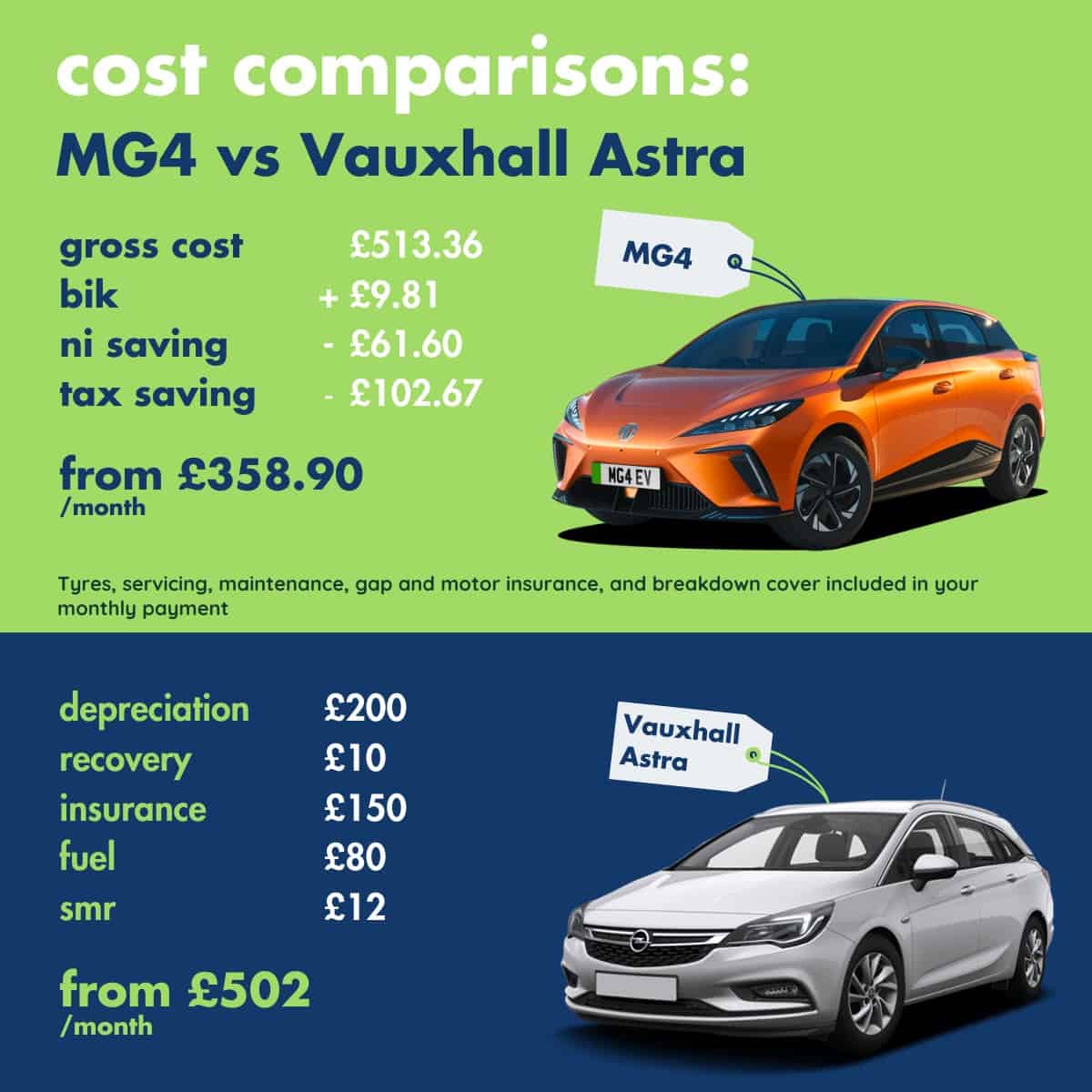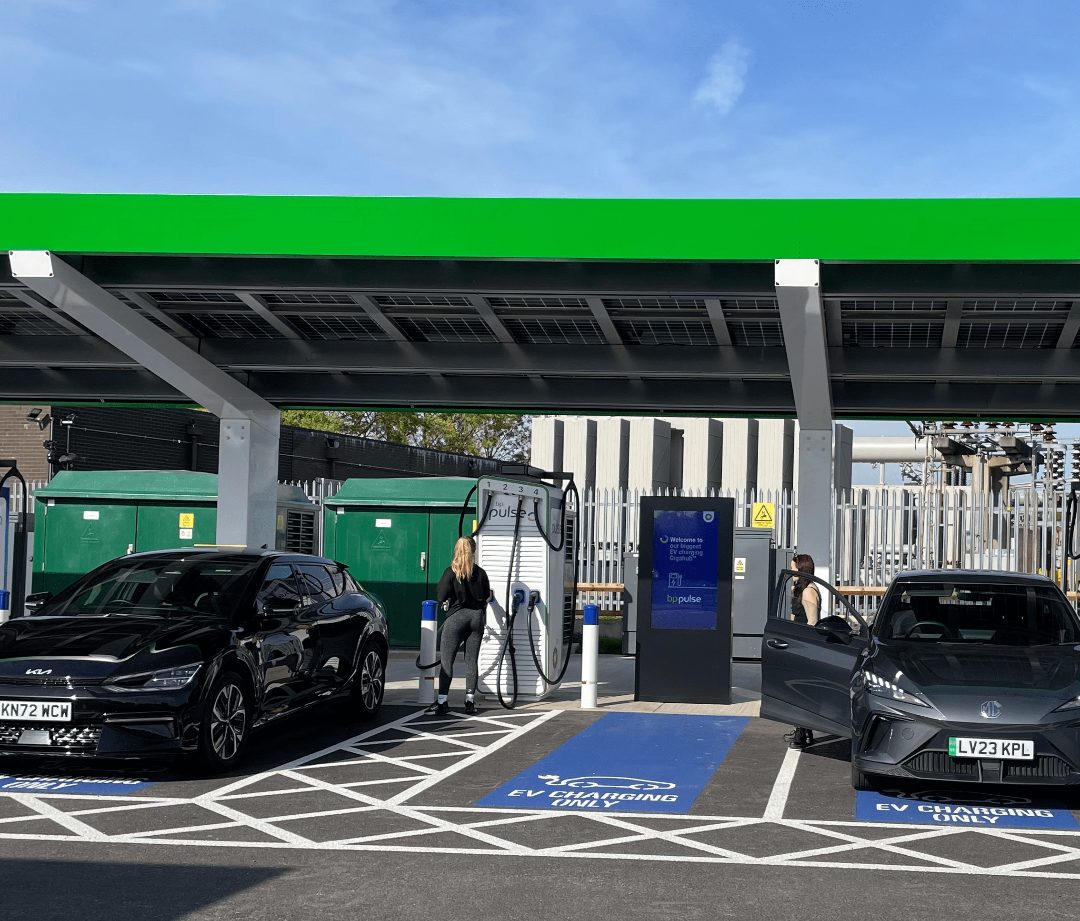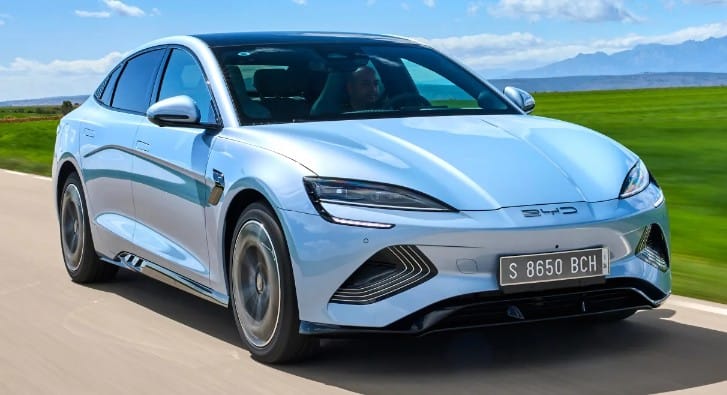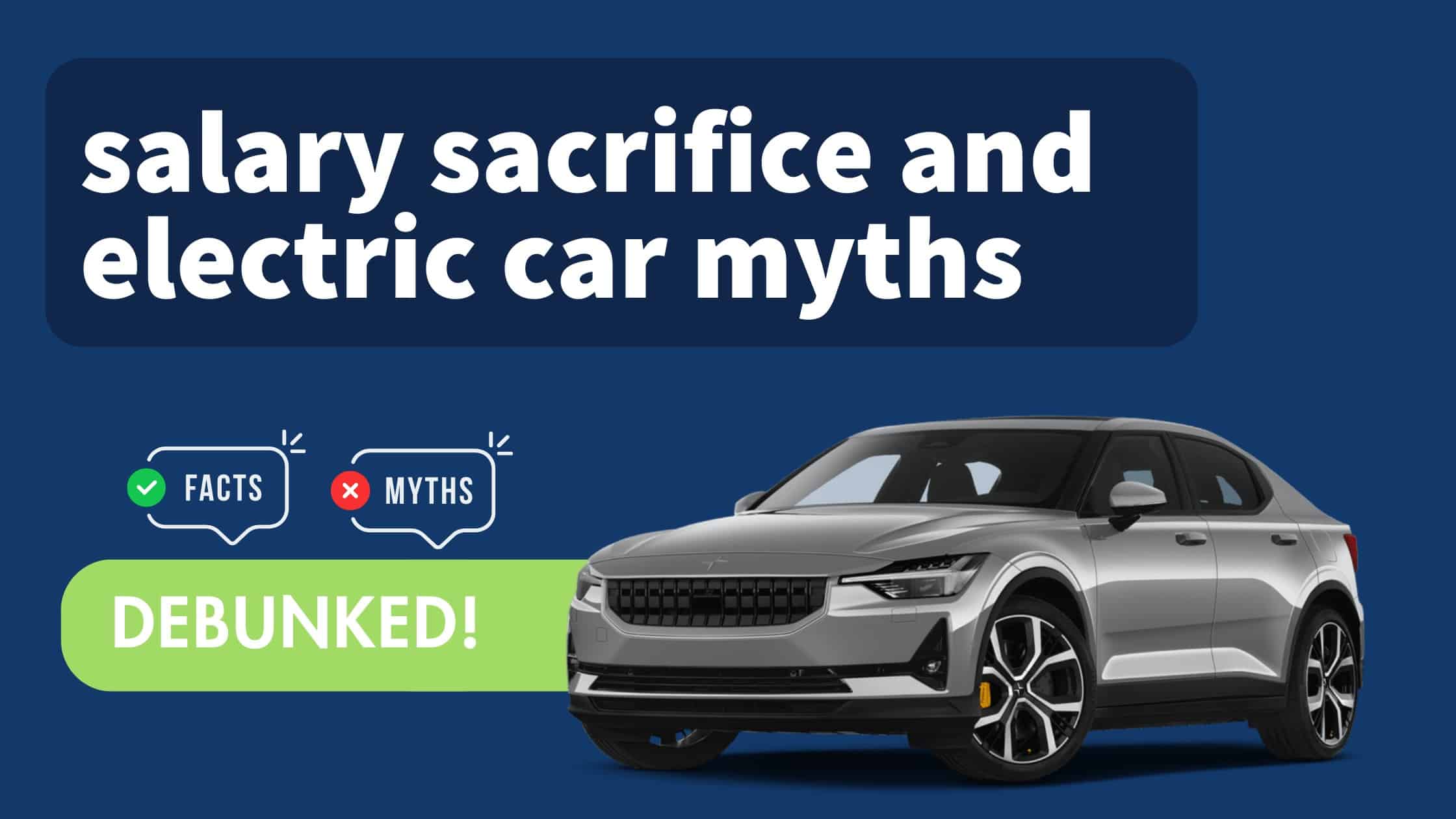Electric Car Myths and Salary Sacrifice Myths: Debunked
Can you believe it? It’s 2024 and people still believe salary sacrifice myths and electric car myths! Despite the ongoing misconception that electric cars are expensive, the initial high cost is outweighed by numerous advantages over traditionally powered vehicles. And while there are obstacles in the electric car world, with growing infrastructure due to demand, there are ways to overcome them. Join us in our Mythbusting Megablog as we dive deeper to debunk The Big 5 myths and show the overlooked benefits of salary sacrifice.
1. Electric Cars are Expensive
Yep, the classic – electric cars are expensive. If you look at them from just a price tag perspective you might have a case. However, when you factor in paying for them you’ll find that they work out much more cost-effective in the long run. Not to mention eco-friendly too.
Electric cars and hybrids in all-electric mode produce zero emissions. Not only are these cars a step in the right direction for saving the planet, but they’ll also save you some cold, hard cash. Don’t let the initial price tag of electric cars scare you off. They may seem unreasonably priced, but you make back all the difference when you factor in the running costs. Take a look at our comparison chart and see for yourself just how cost-efficient they are.
More recently we’ve started to see manufacturers develop more basic and affordable electric cars, such as the MG4, which is one of the most popular cars on our scheme due to its respectable range of 200 miles for just £300/month.
The savings potential with a salary sacrifice scheme is not something to shy away from.
On a salary sacrifice scheme, the lower the CO2, the lower the cost. If you take on an electric car before 2025, the benefit in kind tax is just 2%. Even after 2025, it rises by just 1% until 2028 – you still save even after a few years with your car. And by that point, it’ll be time to renew and get yourself a shiny new one…
If you live or work in a city and have to commute, with an electric car, you also avoid clean air zone fees.
Is it Expensive to Charge My EV?
If you fill up once a week, £50 a time, that’s £2,400 a year! Pretty ruthless when you put it like that…
Economy 7 tariffs have cheaper rates overnight, so you can charge your EV for a fraction of the price of charging at a service. For example, Eon has their ‘Our Next Dive EV tariff’, which gives 9.5p/kWh between 12 AM and 7 AM AND renewable electricity. It’s designed specifically for EV drivers and home charging, so it might be one to consider. Check out our piece on EV charging here for all you need to know about charging costs!
Moving onto our next theory, there’s no charging for electric cars…

2. No Charging Infrastructure
People think there’s no charging for EVs. It could just be that there are no charging stations nearby, but there are always solutions to overcome this. Did you know there are more charging stations than petrol stations in the UK? If you’re one of the many who think there is a lack of charging for electric vehicles, look at all the options that are right in front of you!
Home Charging
If you have a drive or garage, you’re eligible for a home charge point. We offer charge points in your salary sacrifice package, get in touch to find out more. With a 7kWh chargepoint, a typical 60kWh battery electric car will take around 8 hours to fully charge. You can charge overnight from as little as 5p/kW on off-peak energy tariffs, and with companies like Eon offering specific electric car energy options, there’s plenty of opportunity to charge.
Motorway Service Stations
There are plenty of EV charge points available on motorways. Most motorway service stations have them. If you’re travelling further, depending on your EV’s range and your journey length, you might not even have to recharge on your way. But if you do, many EVs now have Maps integration, which shows you public charging options on your route, including service stations; These use fast and rapid chargers, so you won’t have to wait around for hours to charge.
On average, EV drivers will publicly charge around 5 times a year.
However, if you don’t have access to home or workplace charging, public charging is an option. Surprisingly, many public charge points are free to use; a lot of multi-storey car parks just charge you to park, and then you charge for free. And if you’re on a long journey, motorway services usually have rapid chargers that cost less than you think.
You can also get charge cards, where you pay a subscription to access discounted charging rates. MD Andy uses these, and it definitely came in handy on his EV road trip to France!
Workplace Charging Solution with Fleet Evolution
If your place of work takes on our scheme and 5 employees take a car, we’ll offer a workplace charge point. And many employers offer free workplace charging with this! So you might be saving more than you ever expected just by going electric.

3. Electric Cars have No Range
The next of the big 5 electric car myths is that they have no range. Range anxiety is a thing of the past. Sure, they may not have the same range as traditionally fuelled cars. But, with EV range improving year on year, and charging infrastructure being better than ever, you can hardly make this excuse anymore.
75% of UK workers commute less than 10 miles.
10 miles is nothing. You might run into an issue if your electric car of choice is a Twizy or an Ami, but you’d still get to work and back on their range! How many miles is your commute? There are electric vehicles suited for every purpose, those with 180 miles range, those with over 200 miles range, and now there’s a shift in focus to electric pickup trucks! Stay tuned for the blog on that…
Take a look at some EVs with a range of ranges*:
- MG4 – 220 miles range, from £350/month on salary sacrifice
- Volvo EX30 – 225 miles range, from £520/month on salary sacrifice
- Tesla Model 3 – 340 miles range, from £595/month on salary sacrifice
*Accurate on 22/01/24, subject to change.

What About EVs with More Range?
The higher-end electric vehicles are pricier, but with that price tag comes a much better range. Check out the longest-range EVs we have available on our scheme:
- Hyundai Ioniq 6 LR – 361 miles range
- Fisker Ocean Extreme – 360 miles range
- Tesla Model 3 LR – 358 miles range
- Mercedes EQS – 352 miles range
- BMW iX – 324 miles range
- BMW i7 – 321 miles range
- Polestar 2 – 320 miles range
- Ford Mustang – 312 miles range
- Kia EV6 LR – 310 miles range
Interested in any of the cars above? Request your personalised login to our quote engine here or contact the Driverline team to find out more.
Electric Flex
Occasionally, there will be times when you need to do more miles. And if your EV has a lower mileage, you might feel limited in what you can do. If you lease an electric car on our scheme, you can access Electric Flex. This allows you to swap out your EV for a traditional car for a few days a year. No range anxiety or fear of not finding a charge point in the Highlands for you! Next in our next electric car myths is that EVs have no demand…
4. There’s No Demand for Electric Cars
If you live under a rock, you may not know about the 2035 ban on new petrol and diesel cars. So, you’ll be thrilled to know that demand will only increase! People need cars to get them from A to B, or A to Z, which is why there’s a huge scope of electric cars with different ranges and purposes.
Manufacturers are also bringing out even smaller cars to suit the average person’s commute in quadricycles. If you’re not sure what they are, think Citroen Ami and the old Renault Twizy – and yes, we do offer quadricycles on our scheme! They seem like a bit of a gimmick, but they’re perfect for a shorter commute and in-town driving. With a low range and an even lower monthly payment, they’re not a bad option.
If anything, the demand for electric cars is increasing!
- Over 53,000 EV chargers in the UK
- Just under 1,000,000 EVs and 590,000 PHEVs on UK roads December 2023
- 26,000,000 EVs worldwide as of 2022
100% of our orders are for pure electric or hybrid vehicles, why don’t you get on board? Greener vehicles can save you money, especially through our scheme.
5. Salary Sacrifice Schemes are Dead
Our last of the salary sacrifice and electric car myths is that salary sacrifice is dead! Could it be true? Did you know that only 10% of decision-makers have heard of salary sacrifice? Did you also know that only 41% of SMEs offer salary sacrifice as a benefit? (According to the Chartered Institute of Personnel and Development). How tragic!
But salary sacrifice is more alive than ever…
Did you know that half of company cars are pure electric vehicles? Salary sacrifice plays a big role in that, growing by 68% year on year. These schemes are a great benefit for all, and it’s here to stay.
A free and valued benefit that should be accessible to all employees, offering great tax savings as well as immense benefits that can greatly improve your employees’ satisfaction and well-being; that’s not just in the workplace either.
What Kind of Salary Sacrifice Benefits Are There?
There are a few kinds of benefits available to employees through these schemes, which can include:
- Childcare vouchers
- Work-related training
- Cycle-to-work schemes
- Car parking near the workplace
- Additional employer pension contributions
And the big one…

Company Car Schemes
The employee gains all the perks of a company car with the added convenience of full maintenance. You make savings on income tax, National Insurance contributions, and can access discounts directly from the manufacturers, along with special offers. VAT savings are sometimes accessible too, with no deposits or credit checks. We offer a no-hassle concierge service from ordering to delivery to in-life management like servicing and tyre bookings.
Any low or zero-emission vehicle will unlock the best savings for your fleet! With an electric car through salary sacrifice, you save your wallet as well as the planet.
So those are the big 5 electric car myths DEBUNKED. What did you think? Have we converted you to the green side? Get in touch with the team if you want to find out more from setting up a scheme to available cars. We’re on hand to help!

